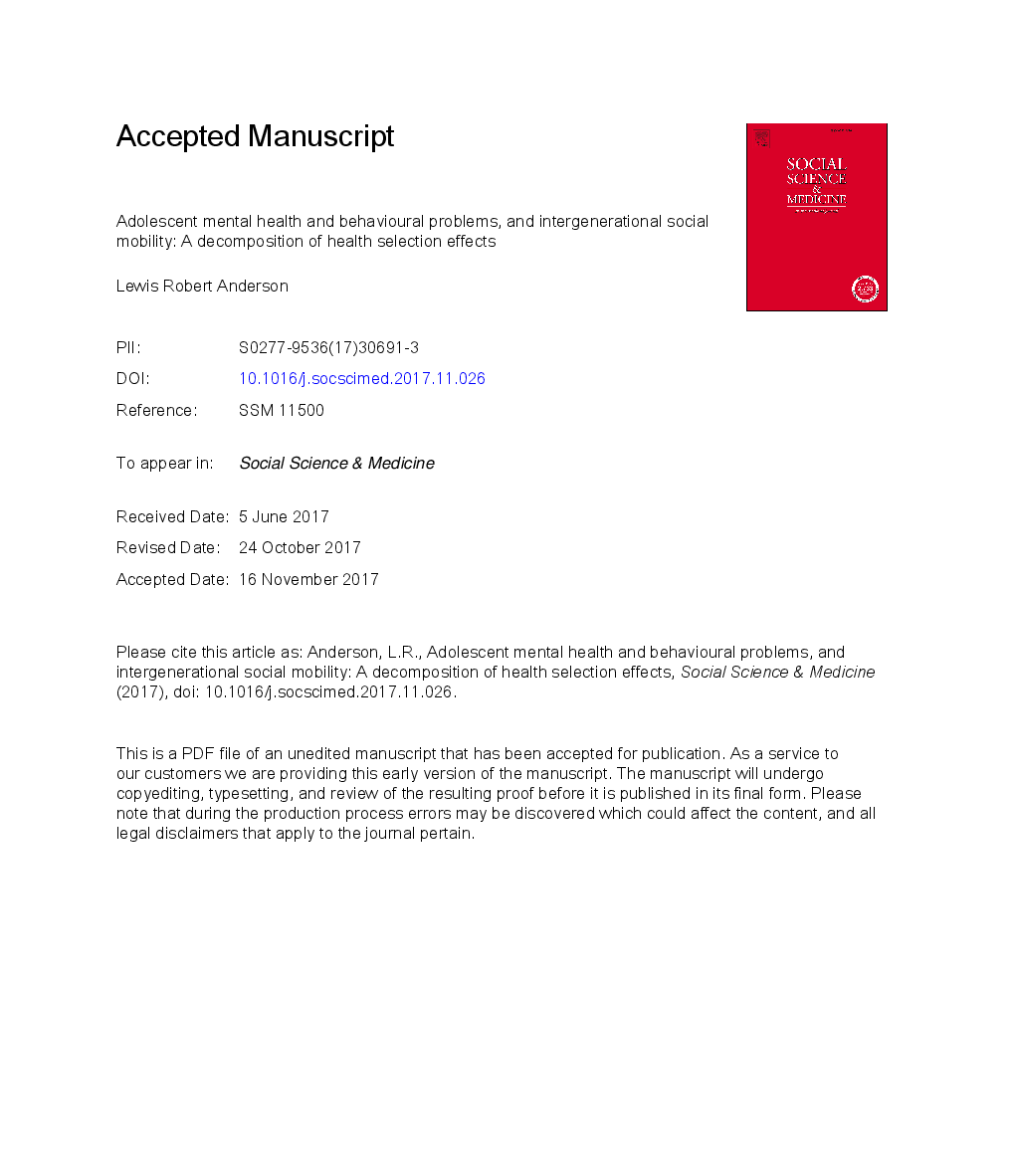ترجمه فارسی عنوان مقاله
مشکلات روحی و روانی نوجوانان و تحرک اجتماعی بین نسلی: تقسیم اثرات انتخاب سلامتی
عنوان انگلیسی
Adolescent mental health and behavioural problems, and intergenerational social mobility: A decomposition of health selection effects
| کد مقاله | سال انتشار | تعداد صفحات مقاله انگلیسی |
|---|---|---|
| 115883 | 2018 | 35 صفحه PDF |
منبع

Publisher : Elsevier - Science Direct (الزویر - ساینس دایرکت)
Journal : Social Science & Medicine, Volume 197, January 2018, Pages 153-160
ترجمه کلمات کلیدی
انگلستان، سلامت روان، انتخاب سلامتی، علیت اجتماعی، نابرابری بهداشتی، سلامت روان نوجوانان، تحرک اجتماعی، محیط اطفال،
کلمات کلیدی انگلیسی
UK; Mental health; Health selection; Social causation; Health inequality; Adolescent mental health; Social mobility; Childhood environment;

